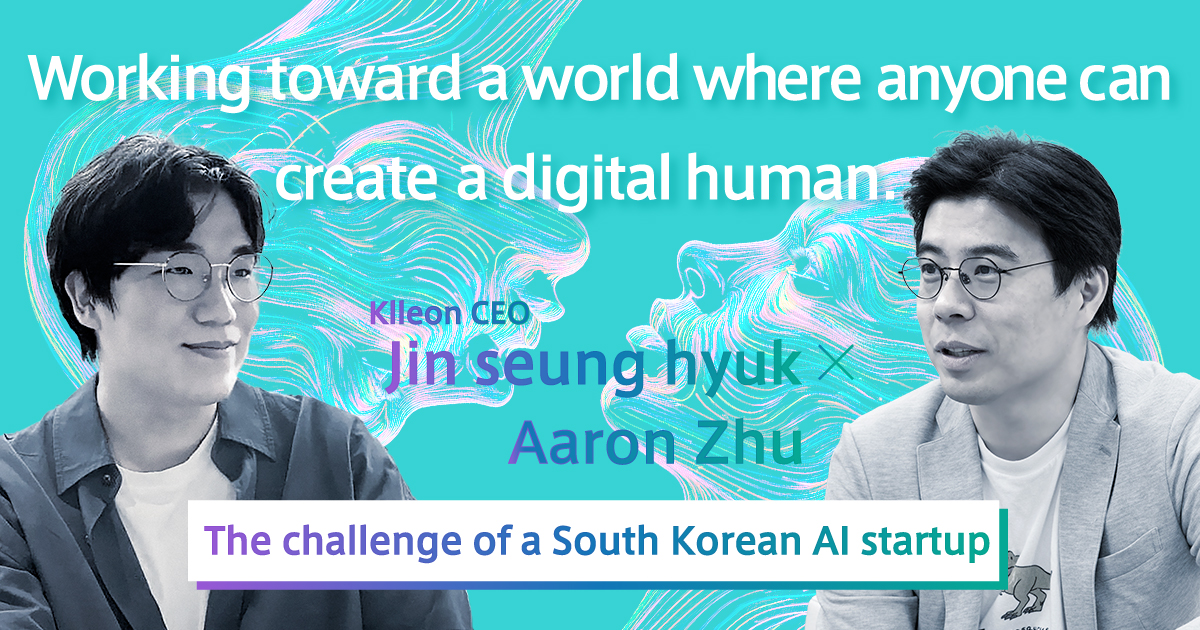
In recent years, with the advances being made in generative AI technology, efforts are underway in various industries to put into practical use “digital humans” that look just like humans and move freely.
Digital humans are already being used overseas to create multilingual services, news programs, virtual influencers, and more, expanding the possibilities for content and services.
In this article, Aaron Zhu of Dentsu Inc.’s BX Creative Center introduces the work of Klleon, a South Korean AI startup that is attracting global attention in the digital human field.
The rapidly growing global digital human market
Digital humans are now becoming a global trend.
According to Emergen Research, the global digital human avatar market was expected to exceed $29.5 billion in 2022 and reach $56.1 billion by 2032. The market is expected to grow at an astounding compound annual growth rate (CAGR) of 34.2%.
As we mentioned in a previous article, digital human technology itself is not new. However, generative AI technology has advanced rapidly in recent years, dramatically improving the ability to generate text, voice, images, and video in real time, making it possible for digital humans to engage in personalized, natural dialogue.
Digital humans are already being put to practical use overseas, such as in multilingual services utilizing in-store digital signage, and in a variety of content including social media, videos, and TV shows. However, although some companies in Japan, including entertainment companies, are making use of digital humans, I think many people still have questions, such as: “What is so great about digital humans?” and “What can they be used for?”
I would therefore like to introduce Klleon, a South Korean AI startup that is attracting global attention in the digital human field.

Using cutting-edge technology to easily generate high-quality digital humans
Founded in 2018, Klleon is a startup that uses cutting-edge generative AI technology to provide solutions that utilize interactive digital humans. With a mission of “creating a world where anyone can easily create video and virtual content,” Klleon’s generative AI technology makes it possible to generate photos, audio, and video content with small amounts of data. The company achieved the feat of winning innovation awards for two products at CES 2022, the world’s largest digital expo, and the two co-founders have also been selected for the Forbes ’30 Under 30 Asia’ list.
Why is Klleon so highly regarded on a global scale? One of the reasons is its cutting-edge technology that makes it easy to generate high-quality digital humans.
For example, the company’s Head Swap technology makes it possible to freely change the nuances of a person’s face, facial expression or hairstyle in a photo or video. This enables the flexible generation of digital humans tailored to specific scenes and dialogue content. By combining other cutting-edge technologies such as Lip-sync generation technology, which creates natural lip movements synchronized with speech and language, and Full-Body generation technology, which creates a 3D avatar from just a single video, it is possible to easily create interactive digital humans with little data or additional learning required.
In South Korea, the broadcasting station MBN uses the company’s technology to create virtual reporters for its news programs. Digital humans are also being used in kiosk terminals at shopping malls and stores, and to translate content into multiple languages in the apparel industry, generating a great deal of buzz and making a big impact.
The company launched the digital human production platform “Klleon Studio” in 2024. Klleon Studio offers over 50 types of software development kits (SDKs) for digital humans to suit a variety of scenarios, including foreign language teachers, customer center operators, marketers, travel guides, announcers, and store guides. Even without specialized knowledge, anyone can easily create customized digital humans.
This time we actually created a digital human of Rika Adachi, a Japanese actress who is cooperating with the talent agency HoriPro and Dentsu Japan and its group companies in Japan in a joint digital human casting project, in Klleon Studio.
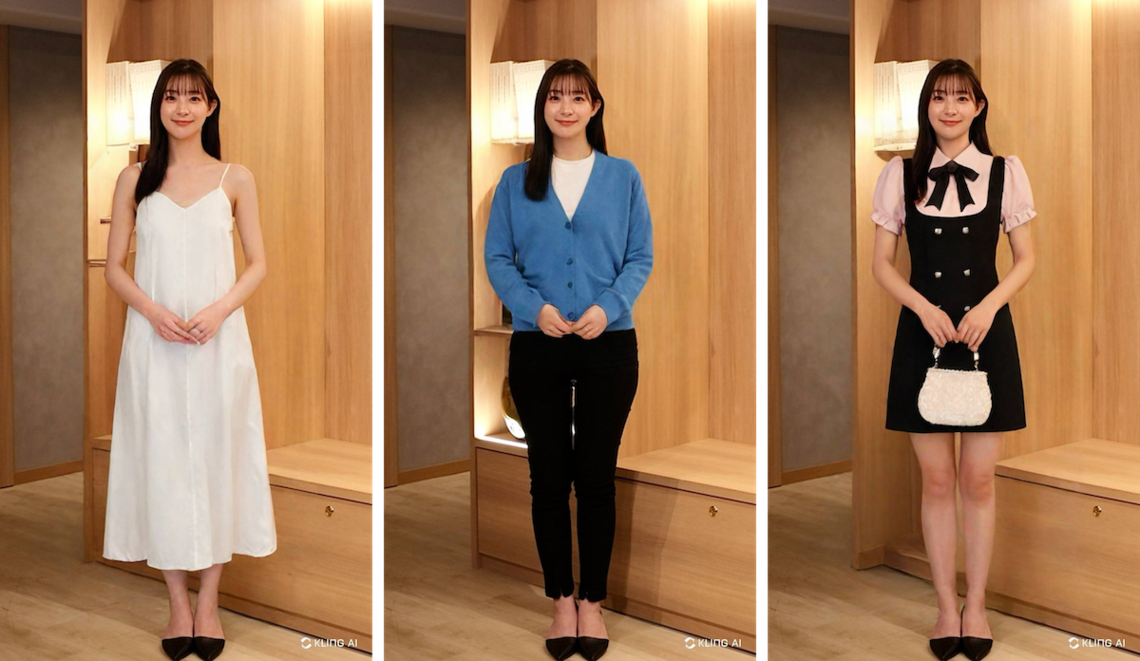
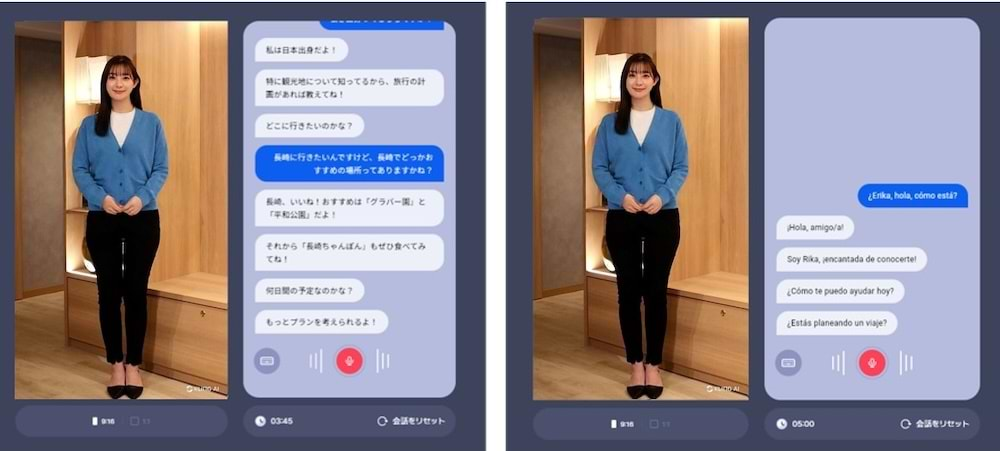
A digital human can not only listen to a person’s voice and conduct smooth conversations, but can also move its body naturally and change facial expressions during conversations. It can speak five languages, and its lips move naturally to match each language.
For example, by using Ms. Adachi’s digital human in tourist information center guides, shopping mall information services, English conversation classes, and more, it is possible to not only enhance the customer experience and buzz surrounding the content or service, but also contribute to solving business issues such as labor shortages and global response.
What are the possibilities for digital humans in Japan?
Klleon has bases in South Korea and the United States, and established a branch in Japan in 2022, focusing on supporting content and service development based on digital humans for clients in Japan.
How does the company see the potential of digital humans in Japan? Aaron Zhu, who is developing a digital human business for Dentsu Inc. in Japan, interviewed Seung hyuk Jin, one of the co-founders and the CEO of Klleon.
Aaron: In Japan, the use of digital humans is still largely in the development or PoC stage, but what kind of business applications are being realized in South Korea and the United States?

Jin: After conducting more than 100 PoCs in the period up to 2023, Klleon has been creating practical applications since 2024. For example, we provide AI English teaching services to employees who need English at major South Korean companies such as Samsung Electronics, and we provide interactive digital humans that can provide multilingual guidance at Incheon International Airport. We are also working on a project to create interactive digital humans of artists from SM Entertainment, a major South Korean entertainment production company.
Aaron: Digital humans are being used in a variety of industries and situations. There are many companies that have digital human technology, but what are Klleon’s strengths and features?
Jin: Klleon has been researching the core technologies required to build a real-time interactive digital human for over six years. We believe that quality is by far the most important thing. By quality, we mean that the response speed must be within one second, and that the appropriate voice, facial expressions and body movements must be realized for the response. Also, the most important aspect of the commercialization process was the ability to safely transmit large volumes of traffic while providing it at a reasonable price. Klleon takes pride in being at the world’s highest level in this regard.
Aaron: Klleon also operates in Japan. What business challenges and needs can it address here?
Jin: Klleon established a branch in Japan in 2022 to ensure that local demands and requests can be resolved immediately. In fact, within Japan we have been able to smoothly advance projects in collaboration with major companies such as TOPPAN and Adastria.
Aaron: I believe that digital humans have the potential to expand Japanese content and services globally. Please tell us if there are any unique advantages or areas where you feel Japanese content has potential.
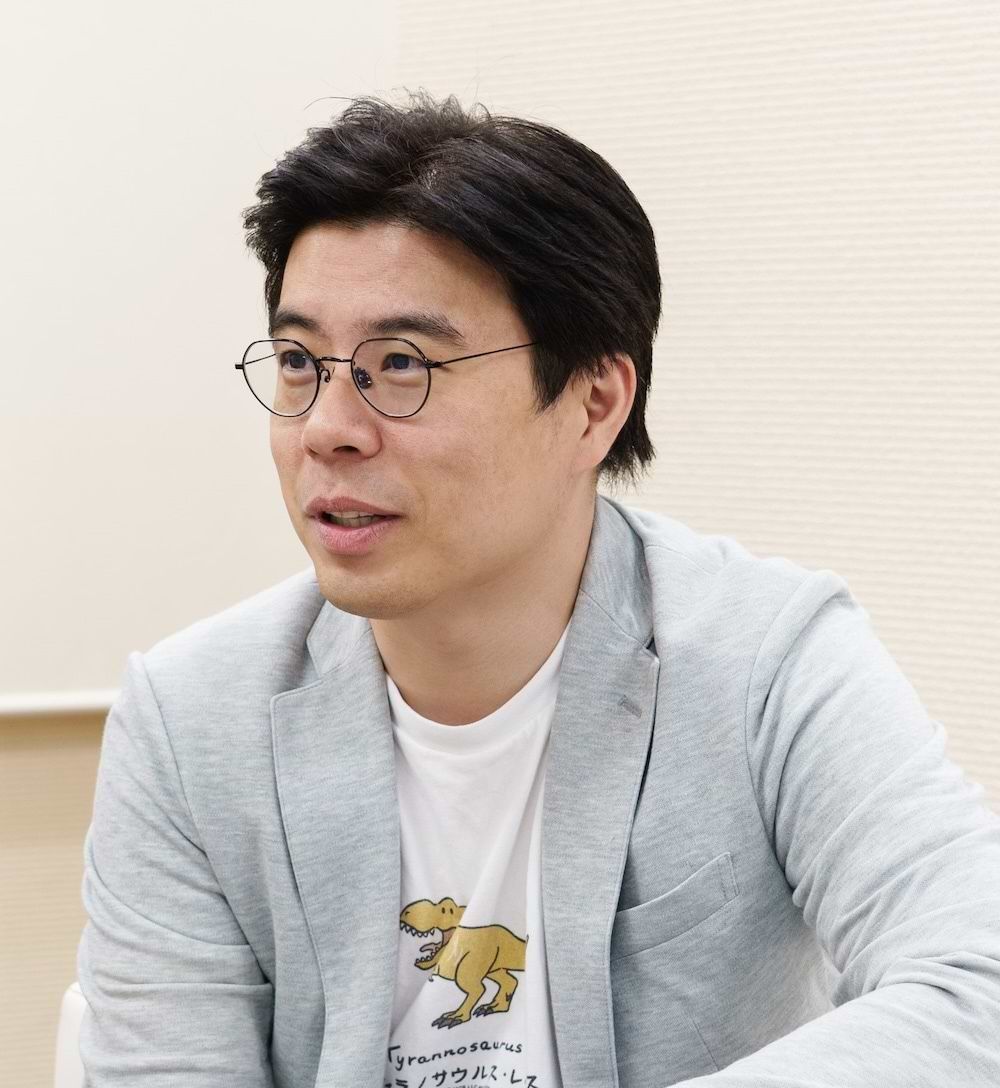
Jin: In addition to the United States and South Korea, I am also working on projects in the Middle East and Southeast Asia. From my many years of experience, I can clearly see the latent potential and power that Japan has. I also feel that Japanese people love content more than any other country, and pay attention to even the smallest details of the content. When creating an interactive digital human, the technical aspects cannot be ignored, but in the end, I believe the most important thing is how much engaging content we can create. In that sense, I am very grateful for the opportunity to collaborate with Dentsu Inc.
Aaron: Please tell us about the world or mission you would like to realize through your business from now on.
Jin: I believe that my role is to connect the world with the most beloved and engaging digital humans. I want to solve the various problems caused by a lack of communication that occur all over the world.
Aaron: Thank you very much!
Dentsu, which is developing a digital human business, will continue to work with Klleon to expand the possibilities of its content and services, and take on the challenge of creating new customer experiences and value.
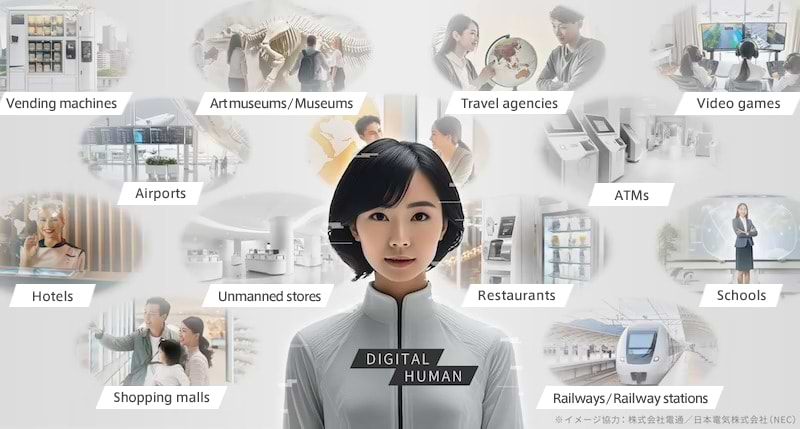
If you are interested, please feel free to contact us.
Business inquiries
- Aaron Z. Zhu
- Contact:https://dentsu-bxcr.com/contact
